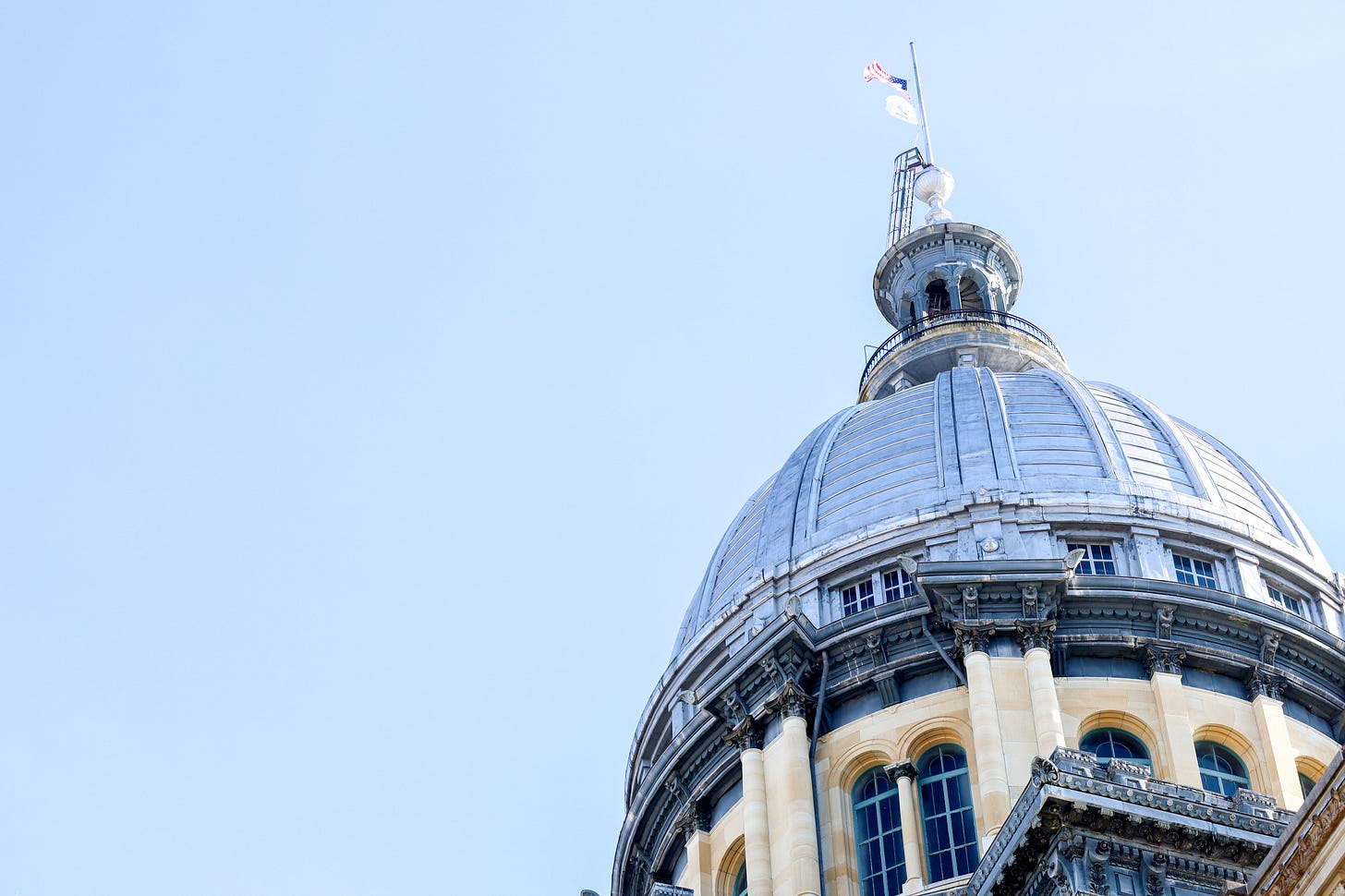Thomas Jefferson never said that
Vigilance is not just needed to prevent corruption. It is a necessity for liberty itself.
At 4:30 p.m., March 2, 2022, former Illinois House Speaker Mike Madigan was formally indicted on federal corruption charges.
Thirty-eight minutes later, I received a text from former Gov. Rod Blagojevich: “What took ‘em so long.”
Why does Blagojevich have my phone number? That's the topic of another email (or a novel).
But it has me wrestling with the question of, “How does this keep happening?” Have we now rooted out corruption? Is the old machine finally dead?
Those who assumed Statehouse power from Madigan certainly want us to think so. I turned to Thomas Jefferson.
Etched into a statue at the National Archives are words attributed to Jefferson: “Eternal vigilance is the price of liberty.”
This rings true to me. Madigan will not be the end of political corruption. The price of freedom is that we stand guard, continuously, against the tyranny of corruption.
So I started digging into Jefferson’s archives to find the context for that quote, to see if the particulars would offer us clues or instruction.
As it turns out, Jefferson never said it. His presidential library at Monticello has found no written documents with that quote.
So who said it?
It turns out it was not used in the full context until abolitionist Wendell Phillips, who fighting against slavery in 1852, said, “Eternal vigilance is the price of liberty; power is ever stealing from the many to the few… Only by continued oversight can the democrat in office be prevented from hardening into a despot; only by unintermitted agitation can a people be sufficiently awake to principle not to let liberty be smothered in material prosperity.”
Vigilance is not just needed to prevent corruption. It is a necessity for liberty itself. It is required to stop the oppression of the powerful from enslaving their fellow human beings.
Phillips’ remarks were often used by Fredrick Douglass to make the same argument.
While powerful, it turns out that Wendell Phillips was not the first to use this quote.
The earliest use of the phrase came in 1790 from Irish attorney John Philpot Curran, who during the election of the Lord-Mayor of Dublin said, “The condition upon which God hath given liberty to man is eternal vigilance, which condition if he break, servitude is at once the consequence of his crime, and the punishment of his guilt.”
What Curran is getting at is we have an option. We have the ability to be lulled into believing the fight is over. But if we allow passivity, the result is servitude.
Whoever first said “eternal vigilance is the price of liberty” is not what’s important. What is more instructive is it has been used throughout time. From an Irish attorney who fought for Irish freedom, to several founding fathers who likely used the quote in everyday discourse, to abolitionists Wendell Phillips and Fredrick Douglass.
Vigilance must continue, generation after generation.
So Madigan being indicted is not the end of the war. By its nature, a democracy will invite tyrants who take our liberty. Individuals will engage in illegal corruption or corruption that they deem legal to enhance their own interests. Their gain is at the expense of the many.
It is our job, as citizens, as investors in the Illinois Policy Institute, to continue this diligence. The duty is there day after day, year after year. We protect liberty.
I can’t help but wonder, “Will Madigan text me one day about the next corrupt politician to be indicted in Illinois?”
Until then, our commitment to Illinois is to stand watch. We pledge to protect the flame of liberty, because there will always be those intent on dampening it.
Matt Paprocki



